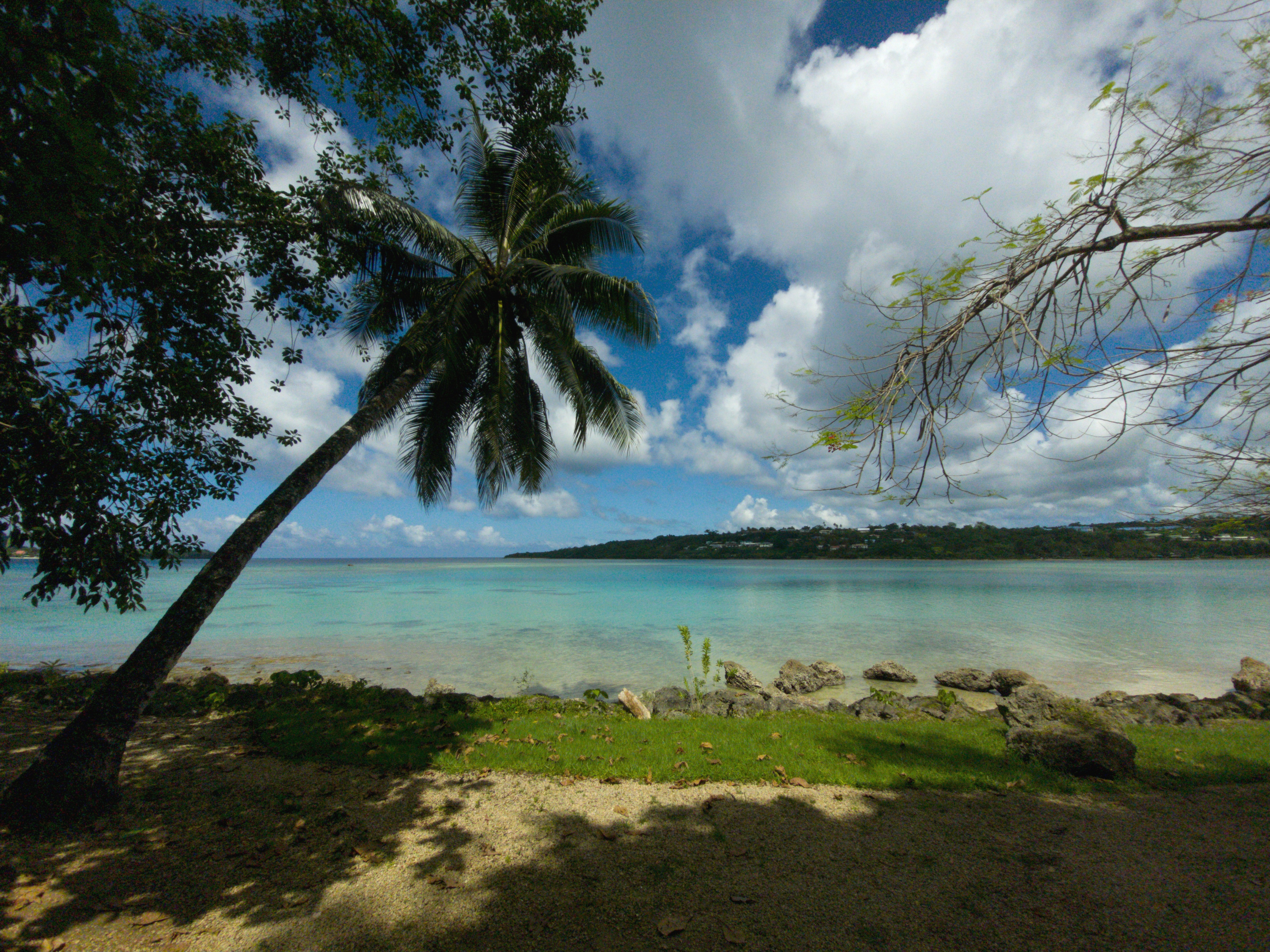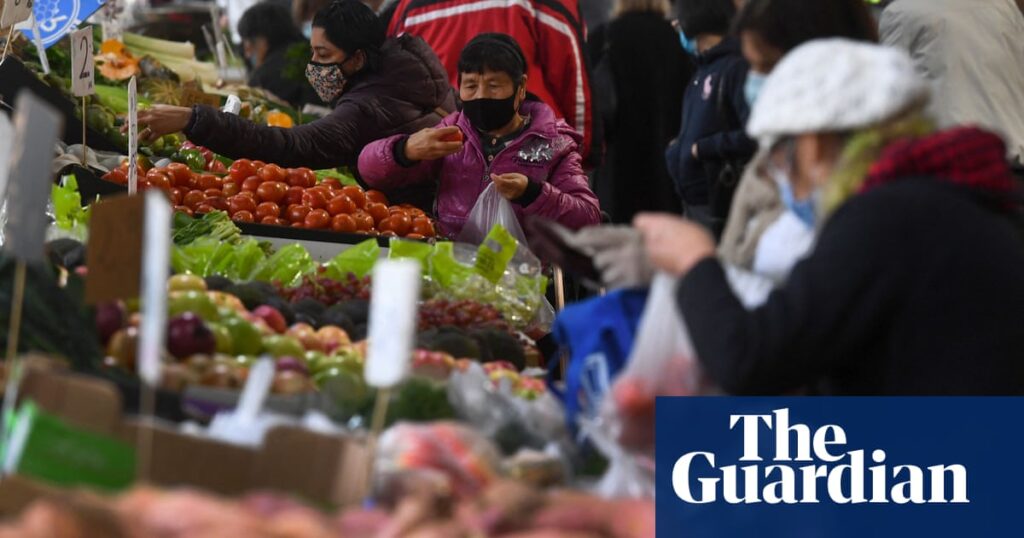 Pacific island nations saw their economies shrink an estimated 5.8 percent in 2020 amid a collapse in tourism.
Pacific island nations saw their economies shrink an estimated 5.8 percent in 2020 amid a collapse in tourism.
Port Vila’s picturesque seafront walk has been largely deserted since Vanuatu’s borders closed in March 2020 [File: Dan McGarry] By Dan McGarry Published On 22
Port Vila, Vanuatu – Dressed for work in a torn T-shirt and a plain black baseball cap covering his thinning dreads, Lopez Adams’s appearance belies his success.
He is at the forefront of a wave of business owners in tiny south Pacific nation Vanuatu who are finding new ways to survive in a world without tourists.
His Coffee Tree cafe has become a fixture in Port Vila, the picturesque capital of Vanuatu, an island nation of 300,000 people located about 1,750km (about 1,100 miles) east of Australia.
Despite its unprepossessing ambience, the cafe has become the meeting place – and workplace – of the city’s trendsetting laptop brigade.
Adams, who has spent his life in and around the capital, takes pride in spotting trends before they happen.His secret to pandemic survival is his secret to success: treat the tourists as a surplus crowd, and focus on the locals to survive.
“We were not focusing too much on tourism, because we know it’s always a fragile business to do.”
He cites his reliance on local producers as key to weathering the country’s pandemic isolation.Leveraging his longstanding relationship with growers and fishers, he negotiated a survival plan in which they guaranteed volumes of sales in exchange for reduced prices.
While other businesses struggle with shortages of flour and other staples due to global shipping disruptions, he is making gnocchi with locally-grown sweet potato, known as “kumala”, and selling it at prices well below those of local resorts.
Lopez Adams is among a wave of Vanuatu businesspeople who are finding ways to survive the pandemic
[File: Dan McGarry] There is another benefit to his cooperative approach.When the economy finally recovers, businesses will “come back equally”, Adams said.
“All the business [will] come back when the borders are open.”
Businesses in Vanuatu, like those in other remote Pacific island nations that heavily rely on visitors, will be dealing with adversity for some time yet.Before sealing its borders in response to COVID-19, Vanuatu, which has yet to report any cases in the community, generated about 45 percent of its gross domestic product (GDP) from tourism and travel.
Last year, Vanuatu’s GDP shrank 8.5 percent, according to the Asian Development Bank, the largest contraction since the country gained its independence from Britain and France in 1980.Taken as a whole, the economies of 13 island nations in the Pacific shrank 5.8 percent in 2020, according to ADB data.
Vanuatu Prime Minister Bob Loughman has expressed hope that border restrictions will begin to ease in March, but Director of Public Health Len Tarivonda has flagged the end of the second quarter as more likely.
Vanuatu and fellow Pacific Island nations Papua New Guinea (PNG) and Solomon Islands are lagging in the race to vaccinate.
After nearly six months, Solomon Islands has double-vaccinated less than 20 percent of eligible adults.Vanuatu started vaccinations in earnest in June, but it is not on track to meet its year-end goal of giving at least one dose of vaccine to 80 percent of the adult population.
The Sydney-based Lowy Institute predicted in a report released on Sunday that the three countries could be among the last on earth to achieve high vaccine coverage, with PNG on track to only have jabbed 35 percent of adults by 2026.
Other Pacific island nations have done better.
Fiji is preparing to reopen to tourists on December 1 [File: Reuters] In Fiji, the government is hurtling ahead with efforts to revive its tourism industry, one of the largest – and hardest-hit – in the South Pacific.Before its planned reopening to tourists on December 1, Tourism Fiji locked in a promotion deal with Australian comedian Rebel Wilson, in an attempt to appeal to a younger, devil-may-care demographic that has chafed under travel restrictions.
Fiji needs every tourist it can get.Before the pandemic, tourism accounted for nearly 40 percent of economic activity.In 2020, Fiji’s GDP shrank 15.7 percent, according to the International Monetary Fund, with expectations of a further 4 percent contraction this year.
Fiji’s experience with the Delta variant has been a bitter one, with more than 52,000 cases and nearly 700 deaths in a population of less than 900,000 people.By July, the country’s infection rate had exceeded India’s.
Now, there is a sense of urgency as the government balances the value of positioning itself as a first-mover in the lucrative Australian and American tourism markets with the risk of further infection.
An aggressive vaccination campaign, backstopped by more than a million doses donated by Australia, has placed the country in a region-leading position in the immunity race.Only tiny Niue, with less than 2,000 people, has a higher per capita vaccination rate.
Fiji’s enthusiasm is no doubt tempered by French Polynesia’s abortive reopening.
The move was heralded by a July visit from French President Emmanuel Macron.Within days of his visit, though, a second wave of infections swept the island chain.
French Polynesia now has one of the highest infection rates among the Pacific islands, with 45,601 cases and 636 deaths.
For other Pacific island countries, the return of tourism appears to be a distant prospect.
In PNG, the most populous Pacific island nation with almost nine million people, health officials temporarily rolled back hospital services in the face of overwhelming numbers.
A lack of testing makes it hard to be sure just how bad things are.
Official government figures suggest that as of October only 23,000 people had tested positive, but World Health Organization-managed data seen by the AFP news agency showed that suspected infections had surpassed 60,000.The official death toll of fewer than 490 people is widely believed to be an underestimate.
With a health system that is limited at the best of times and large anti-vaccination demonstrations outside Parliament, the country is struggling to function.
Last week, Scott Waide, a veteran journalist in PNG, penned a vivid narrative of his family’s efforts to keep their parents alive in the capital, Port Moresby, recounting the struggle to find oxygen tanks and respirators to care for the elderly couple at home.
‘Lost decade’ The cost in lives and livelihoods across the region has yet to be fully tallied.In December 2020, the Lowy Institute predicted that unless Pacific island countries received a $3.5bn surge in development assistance over the next few years, the region would face a “lost decade”.Since then things have improved little.
“The outlook for the Pacific has probably gotten worse overall during the past year,” said Roland Rajah, lead economist at the Lowy Institute.
“Fiji and others that have done well with vaccinations are still heavily reliant on the broader global economic recovery, especially in tourism, which will take time.
While the outlook has obviously gotten worse in others like PNG, Solomon Islands, and Vanuatu that are lagging behind badly with their vaccination campaigns.”
Whether living with the virus or with its economic effects, Pacific islanders are coming to terms with the idea that the hard times are only slowly receding.In Vanuatu, Lopez Adams is focused on finding ways for everyone to get through this time together.
“I hope everyone can start thinking about this new way of doing business,” Adams said.
“Always look at the past, and the future.Make the best assessment today.So when something happens, you are ready to face it.”
Source: Al Jazeera.
